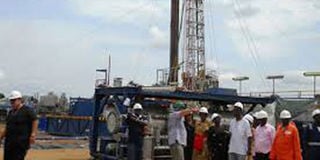Oil: Don’t ignore transboundary issues

What you need to know:
As civil society coalition organisation on oil and gas in Uganda (CSCO), we believe that the Resettlement Action Plans (RAPS), should be conducted as part of the ESIA so that both the environmental and social impacts are considered as one. We also recommend that, the ESIA clarifies the extent to which the RAP has been implemented given that the RAPs are part of the mitigation plans for social impacts.
Developing oil infrastructure comes with social and environmental issues. However, are the developers prepared to avoid, reduce or ignore their effects on the people and environment? (PAU) in accordance with regulation 22 of Nema conducted public hearings, which raised some critical issues.
The existing laws - The National Environment Act and the EIA Regulations) that regulate Environmental Impact Assessment (EIA), do not fully cover social-cultural issues as reflected in the analysis of the National Environment ACT Cap 153.
It is for this reason that resettlement action plans and other livelihood-related issues are not integrated in process of conducting the Environmental and Social Impact Assessment (ESIA). As civil society coalition organisation on oil and gas in Uganda (CSCO), we believe that the Resettlement Action Plans (RAPS), should be conducted as part of the ESIA so that both the environmental and social impacts are considered as one. We also recommend that, the ESIA clarifies the extent to which the RAP has been implemented given that the RAPs are part of the mitigation plans for social impacts.
Livelihood concerns identified in the Tilenga, Kingfisher and the East African Crude Oil Pipeline (EACOP) ESIA reports ideally ought to have been addressed before submission of the report in RAPs, which are not yet submitted. The National Environment Policy provides for both environmental and social-cultural impacts being captured in the ESIA, but the existing legislations and the regulations are silent on how the social issues of the project should be integrated in the ESIA.
CSCO raised issues on trans-boundary concerns in respect to water abstraction from Lake Albert and potential oil spill as another issue that needs critical analysis. The ESIAs presume that acquisition of a water abstraction permit from the Directorate of Water Resource Management is all that is required prior to abstraction of either surface or underground water. Lake Albert being a trans-boundary resource, abstraction of its water, will need addressing other requirements as agreed between Uganda and the DR Congo in respect to sustainable utilisation of the water resources.
Pursuant to the requirements of the Ngurdoto Agreement between Uganda and DRC on the use of the lake, the analysis of trans-boundary issues in the ESIA report focuses more on social, economic and security issues. The silence on the environmental impact of the kingfisher project, which could impact on the neighbouring communities from DRC needs a mitigation plan for the potential environmental impact of the project on the immediate communities in DRC.
Fishing is a major livelihood activity in the community. CSCO argues for provision of information on alternative livelihood options.
Sam Mucunguzi,
[email protected]


